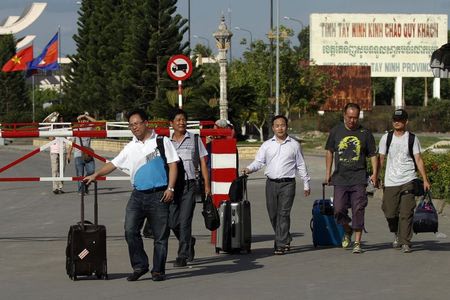Across Europe, there were elections this past week where European Union countries held votes to select their nations' representation in the European Union Parliament.
Click on image for full picture
From the EU website, "The EU is a unique economic and political partnership between 28 European countries that together cover much of the continent. The EU was created in the aftermath of the Second World War. From the EU website itself, "The first steps were to foster economic cooperation: the idea being that countries who trade with one another become economically interdependent and so more likely to avoid conflict. The result was the European Economic Community (EEC), created in 1958, and initially increasing economic cooperation between six countries ... Since then, a huge single market has been created and continues to develop towards its full potential.
What began as a purely economic union has evolved into an organisation spanning policy areas, from development aid to environment. A name change from the EEC to the European Union (EU) in 1993 reflected this. The EU is based on the rule of law: everything that it does is founded on treaties, voluntarily and democratically agreed by all member countries. These binding agreements set out the EU's goals in its many areas of activity: Mobility, growth, stability and a single currency.
The EU has delivered half a century of peace, stability and prosperity, helped raise living standards, and launched a single European currency, the euro. Thanks to the abolition of border controls between EU countries, people can travel freely throughout most of the continent. And it's become much easier to live and work abroad in Europe. The single or 'internal' market is the EU's main economic engine, enabling most goods, services, money and people to move freely..."
Click on image for full picture
This week's elections, however, found plenty of Europeans voting for Euro-skeptics, with a few parties and individuals standing out. These new voices have serious reservations about the reach and scope of the organization, even as most member nations are fretting over Russian expansion in Ukraine and Georgia. In particular, there are high tensions over immigration, and financial bailouts for poor performing EU member states.
One of the more dramatic results was in France where Marine Le Pen, leader of the National Front party could find itself with 25 seats, up from just 3 seats in 2009.
Click on image for full picture
In the UK, the Euroskeptic UKIP party leading for the most seats of the 74 alloted to that country, with similar skepticism finding voice in other EU countries - Denmark and Hungary for two.
The EU parliament has approximately 750 seats, seemingly unwieldy, but once the votes settle in with firmer numbers, there will no doubt still be a majority in full accord with EU goals and vision. Germany in particular, with the largest number of seats (96) in the EU parliament, maintains its orientation towards European integration (though with tough financial standards).
Click on image for full picture
But there is unrest in the organization, somehow similar yet much more complex than the United States where 435 members of Congress representing 315 million are polarized (but at least speaking American english). Imagine the complexity of the EU with 500 million citizens, and dozens of languages. The EU in that sense is closer to India, with its dozens of languages, religions, and 790 seats (though outpacing either the US or EU, with 1.2 billion citizens).
In Europe especially, immigration concerns and strong nationalistic strains tend to bring up reminders of the dangers of far right ideologies - overt anti-semitism and fascism - so separating true concerns from these more extreme views will be the challenge.
On to the Ukraine
It appears that a billionaire who runs a chocolate industry in the Ukraine will be the next President of this fractured country. Petro Poroshenko, aka the "Chocolate King," won more than 50% of the vote, which avoided a runoff in June. A former economics and foreign minister, ironically, he served in the cabinet of his the previous ousted President Viktor Yanukovych. Mr Poroshenko has major challenges ahead, to say the least: armed pro-Russian separatists, and big natural gas bills to be paid might top the list.
On to Lithuania
In contrast to the surprise of the EU elections, and to the drama in Ukraine, there is a steadier election result in the small Baltic state of Lithuania.
Dalia Grybauskaite won her second term as President of this country, and she ran her campaign on a tough stance towards Russian expansionism. As one article writes, "President Grybauskaite has welcomed the presence of NATO troops in Lithuania since the upheaval in Ukraine. The 58-year-old president has a karate black belt and promised during the campaign that she would not be intimidated by Russian aggression, saying "I'll take a gun myself to defend the country if that what's needed for national security."
Click on image for full picture
Another article notes the Presidential election came as Russia's annexation of Ukraine's former Crimean peninsula and "sabre rattling in the neighbouring Russian exclave of Kaliningrad have sparked deep seated fears in Lithuania .... Grybauskaite first urged and then welcomed the arrival of American troops last month as NATO stepped up its presence in the Baltic states, which spent five decades under Soviet occupation until 1991."
Lithuania joined the EU and NATO in 2004 and thus has a much deeper security position than does Ukraine. She is referred to as the Iron Lady, similar to UK's Margaret Thatcher nickname in the 1980s. Though representing a small 3 million population entity, "iron" must necessarily be tempered.
Click on image for full picture
Lots of change ...



